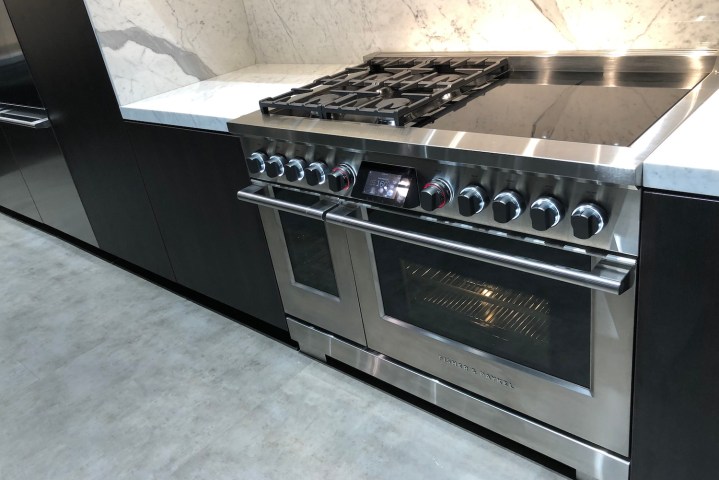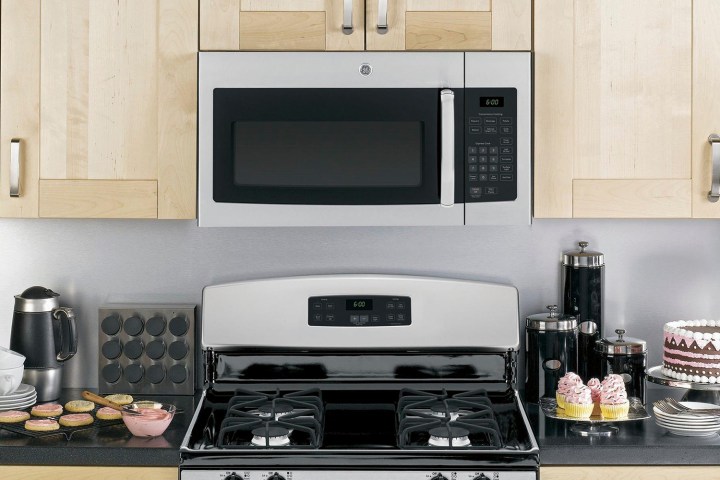Whether you’re in the market for a new abode or you’re looking to upgrade some older home essentials like a dishwasher or a fridge, it’s good to have an idea of when you can expect major appliances to hit their expiration dates. Even if your stove or dryer isn’t on the fritz, you may want to upgrade to improve your home’s design. Perhaps there’s new tech on the horizon that you simply can’t live without?
Whatever the reason, we’ve broken down several major appliance categories to provide a better look at how long you can expect your appliances to last.
Dishwashers: 9 to 13 years

The average dishwasher lasts for about nine years but can make it 10 to 13 years with proper maintenance. In this case, “proper maintenance” means running the dishwasher regularly and properly cleaning out the components. When dishwashers break down, it’s frequently because of a worn-out seal or gasket, which causes further internal problems. Regular operation helps keeps these rubberized parts happier.
Dishwashers in particular have little relation between price and durability. Sometimes the more electronics and components you add, the more things can break down. For the most durable dishwasher, look for those with high-quality parts that resist rust and wear in the pump and piping components, where operation matters more than style.
Oven ranges: 13 to 15 years

The oven range is just the first appliance on our list where the fuel type matters a lot. Electric ranges use heating elements that are more likely to crack and break down over time. Gas ranges, meanwhile, have simple ignition systems and can typically weather the years more easily. Bob Vila reports that you can expect your gas range to last about 15 years, and your electric range should last for around 13 years.
Microwaves: 9 to 10 years

Microwaves will last between nine and 10 years for most kitchens. While a microwave is a fairly complex gadget, there’s not much you can do to help it last other than keep it clean and be gentle with the door. The Complete Home Warranty team also recommends a few other precautionary measures, such as covering your food to prevent messy sauce explosions and making sure you keep the outside clean, too.
Refrigerators and freezers: 11 to 19 years

With the refrigerator, it’s all about what kind you have. A fridge with the common side doors – one for cooling, one for freezing – actually has the worst life span at around 14 years. Those with a top-door freezer can last 17 years. A refrigerator with only one door, while a rare sight these days, has the best life expectancy of all with 19 years. As you can imagine, the harder the fridge has to work at cooling, the more quickly important components like the compressor will wear out.
A freezer, understandably, has to work a lot harder to cool than a refrigerator. That’s why the average lifespan of a freezer-only unit is about 11 years.
Garbage disposals: 12 years

Most garbage disposals will last around 12 years. However, maintenance is particularly important when it comes to disposal longevity. We know you can’t control how your disposal was used before you moved in, but always remember to only dispose of proper foods and never dump in anything like coffee grounds, rice, grease, or thick vegetable fibers. These can ruin your disposal and lead to its untimely death.
This may be why some companies like Mr. Rooter report that garbage disposals typically only last around 9 years. Meanwhile, companies like Yale Appliance study sales generated versus warranty service calls within the first year and report that garbage disposals are actually one of the most dependable appliances they’ve come across. The secret is probably in the maintenance!
Since we’re moving on from kitchen appliances, it’s worth noting that Yale Appliance’s study also found that the most dependable brands on the market included Wolf, Thermador, KitchenAid, and Maytag.
Washing machines and dryers: 10 to 14 years

We grouped the washer and dryer together because their life expectancies are similar, and most people think about them as a package deal anyway. A washing machine will typically last 10 to 14 years, while a dryer will last 10 to 13 years. (Those heating components tend to be a bit more fragile.)
Two things matter when it comes to your cleaning appliances. The first is how often they are used: If you have a family with half a dozen members and are doing lots of laundry every week, you’ll probably only make it to around 10 years. The other important factor is, surprisingly, front loaders versus top loaders. While there is some disagreement about this, top-loading washers appear to last longer than front loaders.
Water heaters: 10 to 25 years

The key question here is: What kind do you have? A tankless water heater designed to heat water only as it is needed can easily last over two decades. An electric gas heater will typically last around 10 years. A gas heater is a bit more durable, but life expectancy isn’t too much longer. A better way to expand the life of your heater is to go tankless altogether. Bob Vila reports that most tankless water heaters will run for around 20 years.
The type of water you have in your area is also important. Hard water has lots of minerals that can precipitate out in the heat and cause problems with scale clogs and buildup that may slowly ruin water heaters over time. If a heater is dealing with well water, the extra sediment could cause additional problems and lower the life span even more.
Furnaces: 15 to 18 years

Furnaces also have lifetimes that depend heavily on their type – in this example, fuel source. In particular, a gas furnace will usually operate at total capacity, about three years or so longer than an electric furnace (and it also won’t use as much energy). Similar to oven ranges, this occurs because gas is typically a more effective and efficient heating fuel that doesn’t consist of as many fragile parts.
This is also one instance when more modern machines do outlive older designs. As a result, more current furnaces have a tendency to be considerably more efficient and can produce an equivalent amount of heat in a shorter amount of time and undergo more minor wear and tear from everyday use.
HVAC: Varies, but typically around 15 years

There’s nothing sadder than trying to warm up beneath mounds of blankets because your house’s air system kicked the bucket. Your heating, ventilation, and air conditioning elements demand consistent maintenance for stable, yearly function. Even while working nonstop, This Old House report announced that your HVAC parts might not run for longer than 15 to 25 years.



